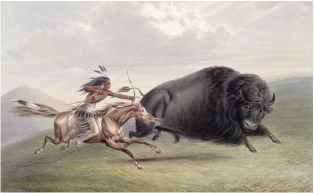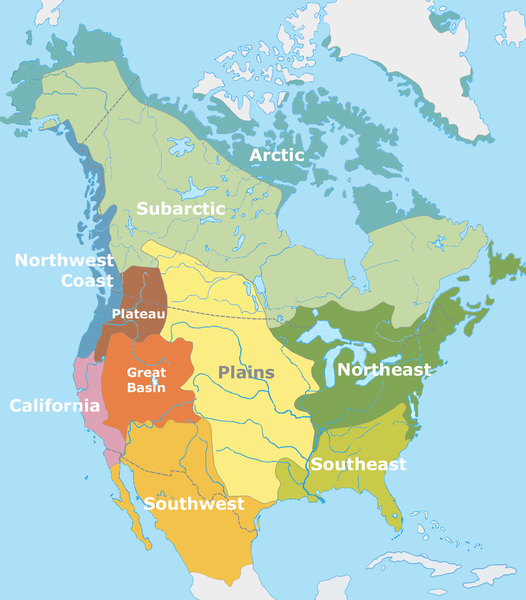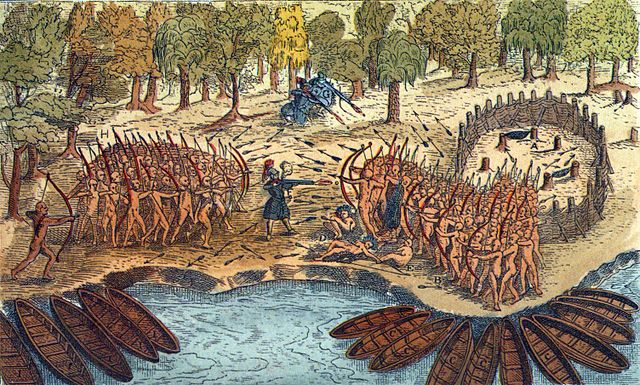|
In the new AP US History curriculum, Key Concept 1.1 focuses on the development of Native American societies in the years preceding and immediately following European contact.
Key ConceptsThere are three broad ideas that a student really needs to understand in order to be successful when questioned about this topic on the AP US History exam:
Nomadic vs Settled TribesWhile some tribes - especially in the North - subsisted exclusively on hunting and gathering, most Indian tribes employed agriculture for at least part of their food supply. Tribes that subsisted on hunting and gathering tended to be nomadic, while tribes that depended more heavily on agriculture built more permanent settlements. Those living close to rivers, lakes, and oceans also fished.
Geographical Culture Groups
Gender RolesIn societies that practiced hunting, gathering, and agriculture, women tended to do the lion’s share of agricultural labor, while men spent most of their time hunting. Early European colonists believed that Native men were lazy and oppressed their women, but from their cultural standpoint, this was simply a different division of labor (Native men wondered why European men did "women's work" on the farm).
Sharon Duncan
7/23/2016 04:26:51 pm
Very helpful. Thank you.
Dianne
2/7/2017 09:32:18 pm
I loved the presentation and train of thought - great resource!
Hattie
12/8/2017 02:02:42 pm
Thank you so much,, very helpful.
Bryan
8/7/2018 08:14:05 pm
this was very helpful thank you! Hope you keep making more great content!
Gabrielle
1/17/2019 11:13:31 am
Thank you for the great information!!! Is there a way to print the notes in an easier format for students who do not have access to a computer or need hard copy of notes for disability?
Jean VanderPlaats
3/13/2019 08:05:36 am
Fantastic resource! Thanks so much.
Dixie Normus
8/10/2019 07:03:16 pm
Dam bro this stuff is so gud. My dixie normus.
01110011
8/25/2019 03:00:03 pm
01110011 01110101 01100011 01101011 00100000 01101101 01111001 00100000 01101110 01110101 01110100 00001101 00001010 Comments are closed.
|
Tom RicheyI teach history and government Archives
May 2023
Categories
All
|






 RSS Feed
RSS Feed